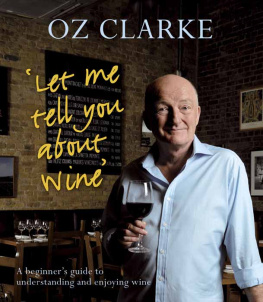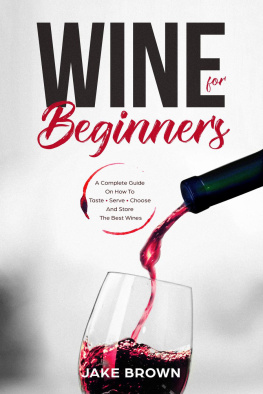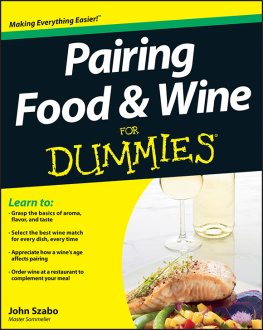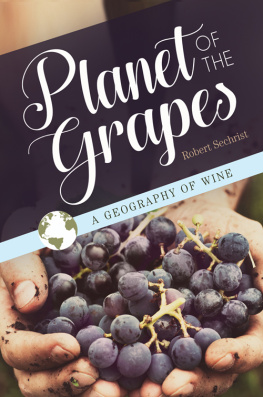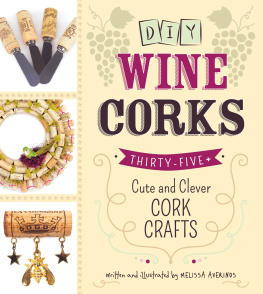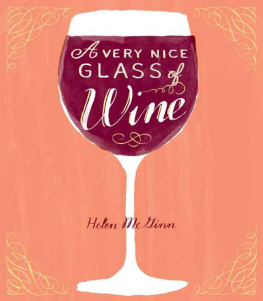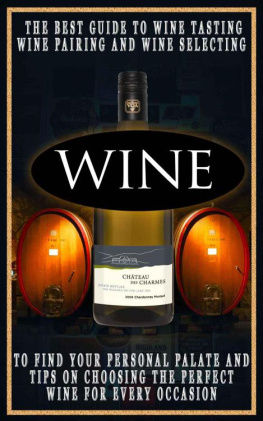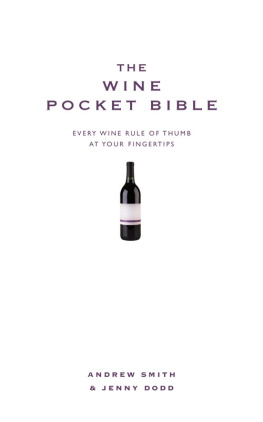WINE HACK
WINE HACK
WINE EDUCATION
THAT STARTS WITH YOUR MOUTH,
NOT WITH YOUR HEAD
JEFFREY SCHILLER

New York
WINE HACK
WINE EDUCATION THAT STARTS WITH YOUR MOUTH, NOT WITH YOUR HEAD
2016 JEFFREY SCHILLER.
All rights reserved. No portion of this book may be reproduced, stored in a retrieval system, or transmitted in any form or by any meanselectronic, mechanical, photocopy, recording, scanning, or otherexcept for brief quotations in critical reviews or articles, without the prior written permission of the publisher.
Published in New York, New York, by Morgan James Publishing. Morgan James and The Entrepreneurial Publisher are trademarks of Morgan James, LLC. www.MorganJamesPublishing.com
The Morgan James Speakers Group can bring authors to your live event. For more information or to book an event visit The Morgan James Speakers Group at www.TheMorganJamesSpeakersGroup.com.

| ISBN 978-1-63047-631-1 paperback ISBN 978-1-63047-632-8 eBook ISBN 978-1-63047-633-5 hardcover Library of Congress Control Number:
2015939522 |
In an effort to support local communities and raise awareness and funds, Morgan James Publishing donates a percentage of all book sales for the life of each book to Habitat for Humanity Peninsula and Greater Williamsburg

| Get involved today, visit
www.MorganJamesBuilds.com | 
|
For my mom
CONTENTS

PROLOGUE

Its not your fault, Will... Listen to me, son. Its not your fault.
Good Will Hunting
Have you ever read a wine description in a newspaper review or a food and wine magazine and immediately hated the author? Aromas of cumquat, Florence fennel, and dragon fruit dance in the glass with layers of cassis, veal stock, and dried sage on the palate, finishing long and velvety. Thanks, Dickens, but will I actually like this wine as much as you enjoyed writing that little poem? Am I drinking a fruit salad or a vegetable-pie smoothie? Would you describe Coca-Cola like that? How about chicken noodle soup? What is so different about wine?
Wine is ultimately just a beverage, and while it affords this author regular romance, profound life lessons, intriguing histories of diverse cultures, a career, great friendships, and a life rich with gustatory ecstasy, I would have to consider it the worlds third best beverage. Coffee delivers a far more important drug than alcohol, and then theres whisky: sometimes you dont need romance; you just need a drink.
In short, wine can be overblown. The reasons for this? In many cases, inequality of information allows those with more information to confuse those who dont have much information, and regularly to the advantage of those with it. My Wall Street friends can attest to how well this works. In some cases, marketers rely on puffery when the true character or the quality of a wine are actually wanting. For the defensible few, its because theres genuine passion, artistry, and a lifes pursuit in every bottle. The immeasurable blood, sweat, tears, bad weather, vineyard pests, plant diseases, early mornings, late nights, barrel-rolling, wine-racking, tank-cleaning, and marathon tastings that go into one vintage of one wine indeed merit faithful worship of the art of winemaking. Or, as explained more succinctly by many winemakers, it takes a lot of good beer to make good wine. Through this lens, wine is deservedly complex.
For fledgling students of wine, the challenges of understanding wine are significant. First, illogically, the major differences across wines are subtle. Deciphering subtlety takes practice. It also isnt easy to teach or explain a sensory experience. How can any expert argue with what a person says they taste? Regardless, and not coincidentally, perhaps as many as 90 percent of wine drinkers cant articulate what they like, much less why. But its not their fault. Dont f*** with me; not you, Sean, not you! Its not your fault. Nobody teaches the wine-drinking public a consistent language to articulate what they are tasting or what they like. Journalists, educators, retailers, and wait staff can all fail you, and regularly do.
For those who dont have the inclination to read up on the Chardonnay clones of Burgundy, nor the means or access to barrel-taste upcoming Bordeaux releases, nor the time to track weather patterns over a favorite winemaking region, the experience remains convoluted and intimidatingor, as my sometimes feisty mother would say, frustrating as hell. For those wine drinkers and for my mother, I have the solution. Wine doesnt need to be so difficult.
With this book, I want to take the undeserved elitism out of wine drinking and make it accessible to everyone. I will build your wine vocabulary, and I will give you the Rosetta stone that unlocks the simple attributes that all those elitist words represent. We will rob the wine douchetocracy of its power with elementary notions that you will be able to articulate to the people who sell you wine. It is my goal to make you as comfortable choosing between a Sancerre and a Muscadet as you are choosing between an iced tea and iced latte.
How can I possibly make all of these promises? If its been made so complex by so many, what possible reason can I offer to explain how Ithe idiot who used double-spacing and manipulated fonts and margins to stretch term papers to the required ten pages, and the same prodigy who inserted the Gettysburg Address into a research paper because he couldnt find enough to say about Abraham Lincolncan create a marked change in peoples ability to learn about wine via a book? In a word, the answer is: food. You already know what foods you like and why. We can learn about and discuss wine with this common foundation that everyone understands and, more importantly, experiences. Well draw parallels from food to inform your understanding of wine.
Plus, know that moments of success happen every day. There are so many outstanding sommeliers and restaurant owners across the country who are knowledgeable and agile in attending to their customers; theyre people who operate in a very competitive restaurant environment and dont make money if youre not delighted. I assure you that they start with the same deductive approach that permeates this book: identifying and then articulating the profiles of the wines you like. Remember this notion of a wine profile; well come back to this. Tell a sommelier (or somm for short) what you like, or normally drink, and theyll find something similar for the amount of money youre willing to shell out. This is how people meet wines they like every day.
So you could argue that, with this book, I have not labored through research and analysis to discover a groundbreaking master key that unlocks all of the mysteries of wine. You could argue that I have, in fact, simply consolidated the proven practices and known truths of those who are best in the business at helping people find the wines they like. You could say that this book isnt novel in approach or original in its content. And youd be right.
Next page

